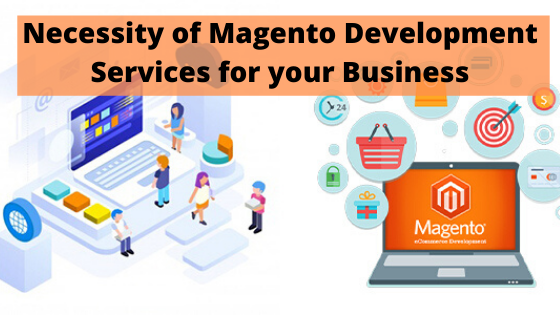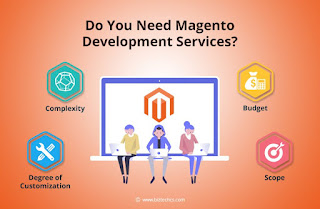
In present days of business scenario, online businesses become more popular and expanding worldwide with big sales volume rather than physical businesses. These online stores or online businesses have been created by using various eCommerce frameworks and software. These frameworks and software play a vital role in enhancing the look and feel of the website with their robust structure, features, and functionalities. There are so many eCommerce frameworks available for web developers, among all of them Magento has become the top choice between website developers. Due to its incredible flexibility, scalability, efficiency and customizable features it can be easily used for online stores, creating an eCommerce website more attractive to customers and sellers.
With these below mentioned points you can find out the explanation of some great features available in Magento development:
Cost-Efficient and Open Source: Magento needs very little effort to set-up and its running cost is also very low. At the initial stage, there is need of set-up costs that includes domain registration, hosting, custom theme development and extensions costs, and the ROI is very high in comparison to the set up costing. The source code is always freely available to the developers, they can download it any time. Because of its open source software, people continue to evolve and develop its new feature and also can use same OSL license for Magento. Magento always maintains a high level of quality because its open-source software is lesser down the business costs.
Effective and Easy for Customer Interaction: For Magento development services you can hire Magento developer from a trustworthy Magento development company. With Magento you can easily perform tasks like customer interaction and customer services. Magento developers helps you to retain great customer satisfaction by providing you guidance on Magento’s important features like account creation, customized form, different language options and currency conversion.
Magento is User-Friendly: Magento is widely used for providing user friendly eCommerce solution to the customers. Vendors and consumers can easily create their collections like add to cart, add product images, add review of products, manage inventory, orders, and delivery & also can set different payment methods.
Magento is SEO Friendly: We can easily optimize any website for SEO, which is created in Magento because it is perfectly SEO friendly. We can also include Google Analytics for the analysis of web traffic and also it is used to find out the customers or users behavior for the website. Magento’s reporting part is also flexible
Marketing and Promotional tools: Magento consists of various great marketing and promotional features like Up Sell and Cross Sell to increase the value of orders. Including this, it has flexible pricing options, this helps in generating good amount of leads.
Themes and Add-ons: Many themes are easily available online in Magento for web development. These themes and add-ons can be easily installed without any hassle. So, Magento is much less complex than other CMS for eCommerce solutions.
Magento is trusted by the world's leading brands for eCommerce development, more than 1Lakh vendors or merchants are using it. Business owners are using it for creating small, medium and large scale online stores. As Magento can be constantly updated and upgraded, it offers so many tools and features that help websites in becoming attractive, noticeable and frequently growing in online business. These are all the main reasons for increasing the preference of Magento for eCommerce web development.
For offshore Magento development services contact one of the finest and expert Magento development companies; Mobiweb Technologies. For enquiry mail at info@mobiwebtech.com


 Log in with Facebook
Log in with Facebook 









